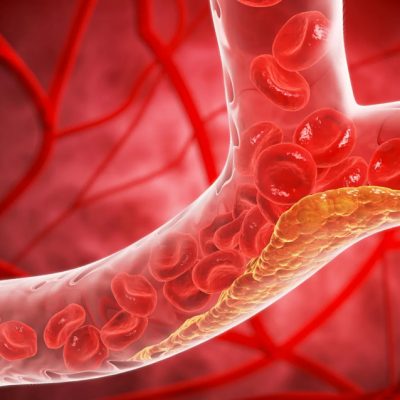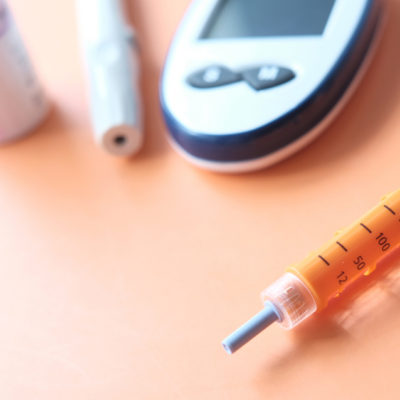People with type 2 diabetes face a higher likelihood of heart attacks and strokes, and that risk increases with each passing year of the disease. Earlier research has shown that red blood cells can influence how well blood vessels function in diabetes. The new study adds an important insight by showing that the length of time someone has diabetes strongly affects when these … [Read more...]
Diabetes

Scientists Discover Metformin May Block Key Exercise Benefits
A Rutgers-led team reported in The Journal of Clinical Endocrinology & Metabolism that metformin appeared to weaken several important benefits normally gained from exercise. These include improvements in blood vessel function, overall fitness and the body's ability to control blood sugar. Since 2006, medical guidance has encouraged people with elevated blood sugar to … [Read more...]
Ozempic, Wegovy and Mounjaro Makes Food Taste Sweeter and Saltier, and that may Quiet Cravings
New research being presented at the Annual Meeting of the European Association for the Study of Diabetes (EASD) in Vienna, Austria (September 15-19) shows that some individuals who are taking Ozempic, Wegovy or Mounjaro find that foods taste sweeter or saltier than before. About one in five of those participating in the real-word study, published in the journal Diabetes, … [Read more...]
Scientists Found 3 Simple Tweaks That Cut Diabetes Risk by 31%
A Mediterranean-style diet, in combination with reduced caloric intake, moderate physical activity, and professional support for weight loss, may cut the risk of type 2 diabetes (T2D) by 31%, according to a new study co-authored by researchers at Harvard T.H. Chan School of Public Health. The study was published on August 25, 2025, in the Annals of Internal … [Read more...]
This Bedtime Snack Swap could Rewire Your Gut and Help Prevent Diabetes
Prediabetes affects a third of people in the United States and most of them will develop Type 2 diabetes, yet effective dietary intervention strategies remain limited. Pistachios have shown promise in improving markers of diet quality, yet little is known about how they influence the gut microbiome -- a key player in glucose regulation and inflammation. A new study led by … [Read more...]
High Muscle Strength Linked to Lower Risk of Type 2 Diabetes
Researchers from the School of Public Health, LKS Faculty of Medicine of the University of Hong Kong (HKUMed) conducted a large-scale epidemiological study to explore the potential health benefits of high muscle strength in preventing type 2 diabetes (T2D) across varying levels of genetic risk. The study found that higher muscle strength was associated with over 40% lower risk … [Read more...]
Your Stroke Risk might be Higher if your Parents Divorced During your Childhood
People whose parents divorced during their childhood may be at a greater risk of stroke later in life, according to a new study published January 22, 2025 in the open-access journal PLOS One by Esme Fuller-Thomson of University of Toronto, Canada, and colleagues. Each year, approximately 795,000 individuals in the U.S. have a stroke. Previous work has established many … [Read more...]
T Cells Rise Up to Fight Infections in the Gut
Your gut is a battleground. The cells that line your small intestine have to balance two seemingly contradictory jobs: absorbing nutrients from food, while keeping a wary eye out for pathogens trying to invade your body. "This is a surface where pathogens can sneak in," says La Jolla Institute for Immunology (LJI) Assistant Professor Miguel Reina-Campos, Ph.D. "That's a … [Read more...]
Eating Dark Chocolate Linked with Reduced Risk of Type 2 diabetes
Consuming dark, but not milk, chocolate may be associated with lower risk of developing type 2 diabetes (T2D), according to a new study from Harvard T.H. Chan School of Public Health. "Our findings suggest that not all chocolate is created equal," said lead author Binkai Liu, doctoral student in the Department of Nutrition. "For anyone who loves chocolate, this is a … [Read more...]
Time-Restricted Eating May Help Adults With Metabolic Syndrome Improve Several Health Markers
Adults with metabolic syndrome and elevated blood sugar levels who eat within a time-restricted window may experience modest improvements in several measures, including A1c levels, weight, and body fat, according to a randomized controlled trial published in Annals of Internal Medicine. For the study, participants kept to an 8- to 10-hour window of eating, a dietary … [Read more...]
New Blood Test Could be an Early Warning for Child Diabetes
New study from King's College London published in Nature Medicine reveals a new relationship between lipids and diseases impacting metabolism in children, which could serve as an early warning system for conditions like liver disease. Using machines that test blood plasma in babies that already exist in hospitals, the researchers suggest this could help doctors spot early … [Read more...]
Inflammation During Childhood Linked to onset of Mental Health Issues in Early Adulthood
Children who have persistently raised inflammation are at a higher risk of experiencing serious mental health disorders including psychosis and depression in early adulthood, according to a study published today in JAMA Psychiatry. The research lead by the University of Birmingham also found that those who had experienced inflammation at a young age were at a higher risk of … [Read more...]
Study Reveals Best Exercise for Type-1 Diabetes Patients
A new study has revealed the best types of exercise for patients with type-1 diabetes. The research was led by the Universidade Federal do Vale do São Francisco in partnership with Staffordshire University to investigate training optimisation for diabetic patients. "This study is important because diabetic patients often lack motivation to exercise as a means of managing … [Read more...]
Type 2 Diabetes Can be Prevented by Diet and Exercise Even in Individuals With a High Genetic Risk
A new study from the University of Eastern Finland is the first in the world to show that a healthy diet and regular exercise reduce the risk of type 2 diabetes even in individuals with a high genetic risk. In other words, everyone benefits from lifestyle changes, regardless of genetic risk. Type 2 diabetes is a global problem. According to the International Diabetes … [Read more...]
Century-old Vaccine Protects Type 1 Diabetics From Infectious Diseases
In new research, investigators at Massachusetts General Hospital (MGH) show that the 100-year-old Bacillus Calmette-Guérin (BCG) vaccine, originally developed to prevent tuberculosis, protects individuals with type 1 diabetes from severe COVID-19 disease and other infectious diseases. Two back-to-back randomized double-blinded placebo-controlled trials found that the BCG … [Read more...]
Physical Activity in Nature Helps Prevent Several Diseases, Including Depression and type 2 Diabetes
Physical activity in natural environments prevent almost 13,000 cases of non-communicable diseases a year in England and save treatment costs of more than £100m, new research from the University of Exeter has found. According to the World Health Organization (WHO) the most common non-communicable diseases -- including heart disease, stroke, cancer, diabetes, and chronic … [Read more...]
Cranberry Extracts Could Boost Microbiota and Counter Cardiometabolic Diseases
Cranberries and berries are associated with multiple health benefits, mainly attributed to their high content of polyphenols, in the form of tannins. They also contain high concentrations of oligosaccharides, small fibres that are thought to contribute to their bioactivity. The research team, led by Yves Desjardins, professor at the Faculty of Agriculture and Food … [Read more...]
Do Sweeteners Increase Your Appetite? New Evidence From Randomised Controlled Trial Says no
Replacing sugar with artificial and natural sweeteners in foods does not make people hungrier -- and also helps to reduce blood sugar levels, a significant new study has found. The double blind randomised controlled trial found that consuming food containing sweeteners produced a similar reduction in appetite sensations and appetite-related hormone responses as sugary foods … [Read more...]
Survey Participants Who were Controlling Their Type 2 Diabetes ate Fewer Sugary Foods and Snacked Less Overall than Participants Without Diabetes and Those Whose Blood Sugar Levels Indicated They Were Prediabetic.
"Diabetes education looks like it's working, but we might need to bump education back to people who are at risk for diabetes and even to people with normal blood glucose levels to start improving dietary behaviors before people develop chronic disease," Taylor said. The study was published recently in PLOS Global Public Health. Researchers analyzed data from 23,708 U.S. … [Read more...]
Study Charts Possibilities for a Better way to Diagnose Gestational Diabetes
Pregnancy weight and biochemical markers measured in blood from women with gestational diabetes mellitus (GDM) were related to increased risk of poor pregnancy outcomes, suggesting a new direction for precision diagnostics, according to researchers. The study led by Ellen C. Francis, an assistant professor in the Department of Biostatistics and Epidemiology at Rutgers School … [Read more...]
New Research Links High Salt Consumption to Risk of Type 2 Diabetes
Those at risk for Type 2 diabetes may already know to avoid sugar, but new research suggests they may want to skip the salt as well. A new study from Tulane University published in Mayo Clinic Proceedings found that frequently adding salt to foods was associated with an increased risk of developing Type 2 diabetes. The study surveyed more than 400,000 adults registered in … [Read more...]
Shortening Sleep Time Increases Diabetes Risk in Women
A new study at Columbia University has found that shortening sleep by just 90 minutes for six weeks increased insulin resistance in women who are accustomed to getting adequate sleep. The effect was even more pronounced in postmenopausal women. The recommended amount of sleep for optimal health is between seven and nine hours per night, yet about one-third of Americans get … [Read more...]
Stimulating Nerves Connected to The Pancreas Regenerates Insulin-Producing Cells
Insulin is a hormone that decreases blood glucose levels. The only cells that produce insulin are pancreatic beta cells (β-cells), and a decrease in these cells is a major cause of diabetes. Although therapies aimed at increasing pancreatic β-cells are eagerly awaited, a strategy that can increase β-cells has, thus far, not been developed. In a promising development, a … [Read more...]
Comprehensive Insulin Signalling Map Shows interplay between genes and diet
Researchers have produced a comprehensive picture of insulin signalling in mice and suggest that it is shaped by entangled effects of genetics and diet. The research, published today as a Reviewed Preprint in eLife, is described by the editors as a fundamental study of substantial importance. They say the authors share compelling evidence that sheds light on the interplay … [Read more...]
Stress and Insomnia Linked to Irregular Heart Rhythms After Menopause
After menopause an estimated 1 in 4 women may develop irregular heart rhythms -- known as atrial fibrillation -- in their lifetime, with stressful life events and insomnia being major contributing factors, according to new research published today in the Journal of the American Heart Association, an open access, peer-reviewed journal of the American Heart Association. Atrial … [Read more...]
Cells With an Ear for Music Release Insulin
Diabetes is a condition in which the body produces too little or no insulin. Diabetics thus depend on an external supply of this hormone via injection or pump. Researchers led by Martin Fussenegger from the Department of Biosystems Science and Engineering at ETH Zurich in Basel want to make the lives of these people easier and are looking for solutions to produce and administer … [Read more...]
Performing Exercise later in the day can result in better control of blood sugar levels
An analysis on the positive effects of exercise on blood sugar levels in people with Type 2 diabetes shows that while all exercise helps, certain activities -- and their timing -- are extremely good for people's health. The study, published in The American Journal of Medicine, provides a comprehensive but straightforward summary of the benefits of exercise on controlling … [Read more...]
An early breakfast may reduce the risk of developing type 2 diabetes
Eating breakfast after 9 a.m. increases the risk of developing type 2 diabetes by 59% compared to people who eat breakfast before 8 a.m. This is the main conclusion of a study in which ISGlobal, an institution supported by "la Caixa" Foundation, took part and which followed more than 100,000 participants in a French cohort. The results show that we can reduce the risk of … [Read more...]
Fasting Diet Reduces Risk Markers of Type 2 Diabetes
Researchers from the University of Adelaide and South Australian Health and Medical Research Institute (SAHMRI) compared two different diets: a time restricted, intermittent fasting diet and a reduced calorie diet to see which one was more beneficial for people who were prone to developing type 2 diabetes. "Following a time restricted, intermittent fasting diet could help … [Read more...]
New Test Could Help Identify Type 2 Diabetes Risk
Scientists looked at the influence of these changes -- known as DNA methylation -- alongside other risk factors in almost 15,000 people to predict the likelihood of developing the condition years in advance of any symptoms developing. The findings could lead to preventative measures being put in place earlier, reducing the economic and health burden caused by type 2 … [Read more...]
- 1
- 2
- 3
- …
- 24
- Next Page »





























